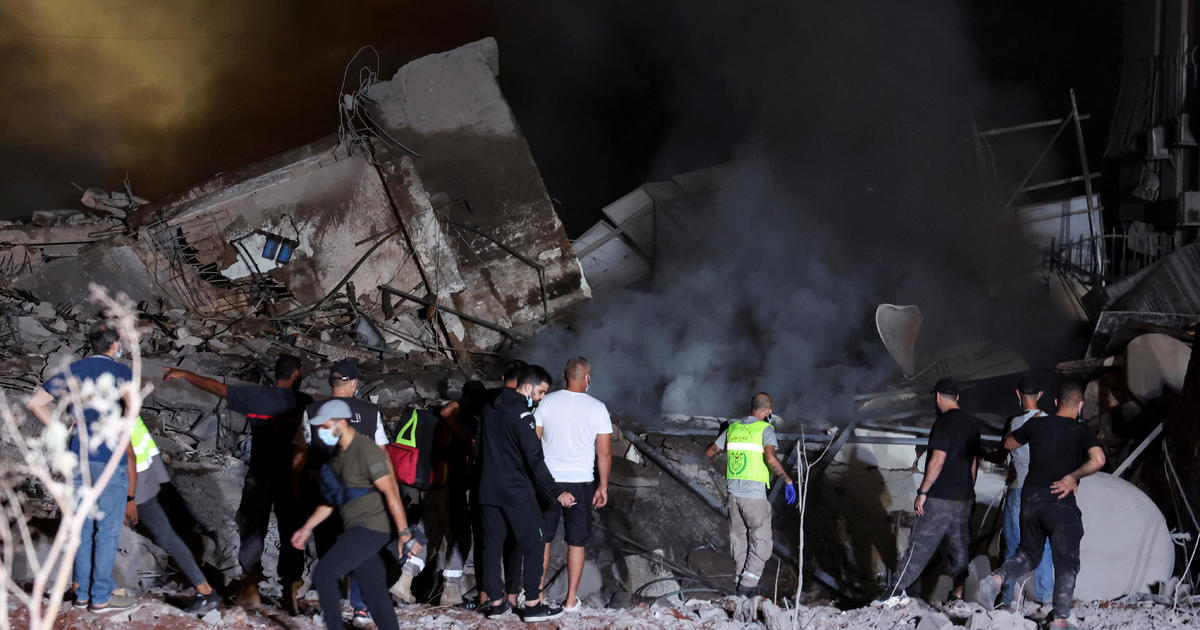Israel’s recent military operation against Hezbollah in Lebanon has resulted in significant destruction and a heightened level of tension in the region. The strikes, targeting Hezbollah’s headquarters in Beirut, have raised concerns about escalating conflict and potential regional instability. The reported death of Hezbollah leader Hassan Nasrallah, while unconfirmed, adds another layer of complexity to the situation. The operation, its aftermath, and the potential for further escalation warrant careful consideration.
The Beirut Strikes and Their Impact
Devastation and Casualties
The Israeli military’s strikes on Hezbollah’s headquarters in Beirut’s Dahiyeh suburbs caused significant damage, reducing several buildings to rubble. At least six people were killed and 91 were wounded, though the casualty count is expected to rise as rescue efforts continue to sift through the debris. The sheer scale of the destruction, with multiple high-rise buildings leveled, underscores the intensity of the operation and its impact on civilian life. The shockwaves from the explosions were felt kilometers away, further highlighting the force involved. The images and videos of the aftermath showed a scene of utter devastation, with collapsed buildings, craters in the streets, and first responders working amidst the ruins. The intense heat generated by the blasts also led to multiple fires. This destruction is not only physically devastating to the infrastructure but represents a substantial loss for the residents who have been displaced from their homes and left without essential necessities.
Targeting Hezbollah Leadership
A senior Israeli official stated that the strikes aimed to eliminate Hezbollah’s senior commanders. While the Israeli army hasn’t confirmed the death of Hassan Nasrallah, the operation’s intensity and the targeting of the group’s main headquarters suggest an attempt to inflict a significant blow to its leadership. Nasrallah’s elusive nature, rarely seen in public, adds to the uncertainty surrounding his status, leaving speculation rife. The operation was clearly aimed at a coordinated assault on Hezbollah’s military command, and the success of eliminating key leaders remains yet to be confirmed or denied, impacting the group’s future operational capabilities. The possibility of a major leadership gap presents a considerable strategic challenge for Hezbollah. However, the group’s demonstrated resilience, capacity for adaptation, and deep roots in the Lebanese community suggest a continuation of conflict is possible, despite the damage to its command structure.
Regional Implications and International Response
Escalation Concerns and International Condemnation
The Israeli strikes have dramatically escalated tensions in the region, raising serious concerns about the potential for a wider conflict. The operation prompted condemnation from various international bodies. The United States, while acknowledging Israel’s right to self-defense, expressed its concerns over the escalation and the civilian casualties. The strikes also put more pressure on ongoing international efforts to establish a ceasefire. These actions by Israel run the risk of creating unintended consequences and widening the regional conflict and raising worries about instability within and around Lebanon. The uncertainty surrounding Nasrallah’s status has contributed to the feeling of unpredictability surrounding the events and their consequences. The international response shows concern for maintaining stability, especially in Lebanon, where Hezbollah has been a significant political power.
Israel’s Justification and Objectives
Israel justified the operation as part of its ongoing campaign against Hezbollah, citing continuous rocket attacks into Israeli territory and efforts to degrade the militant group’s military capabilities. The strikes have coincided with ongoing conflict and extensive Israeli airstrikes targeting Hezbollah installations and assets in several regions. Israel is striving to dismantle and hinder Hezbollah’s capacity to wage war and launch missiles towards its border communities. It has deployed thousands of soldiers to the border in anticipation of a possible war and hopes the military response will create a buffer from attacks. The stated goal appears to be to create sufficient distance from the border region between Israel and Lebanon. However, this response may also heighten regional tensions, creating a more aggressive and reactive cycle that potentially spreads beyond Israel and Lebanon.
Hezbollah’s Response and Future Outlook
Hezbollah’s Defiance and Continued Fighting
Despite the significant strikes against them, Hezbollah officials and supporters have remained defiant. Thousands attended the funerals of Hezbollah members killed in earlier strikes, demonstrating continued resolve in supporting the cause. The vow by Hussein Fadlallah to keep fighting until Israel halts its offensive indicates a sustained commitment to conflict despite the recent losses. They have shown an enduring capacity to replenish and reorganize, maintaining a significant presence in the region despite the ongoing strikes, suggesting a protracted struggle remains possible.
Potential for Further Conflict
The ongoing conflict presents the potential for prolonged instability. The uncertain future of Lebanon is concerning. A wider war, while not necessarily inevitable, appears highly probable, given both the increased intensity and expanded geographical scope of attacks on multiple fronts. Israel’s expanded airstrikes show no indication of stopping soon and Hezbollah’s staunch defense speaks for ongoing struggles between the two groups. These factors all point toward the conflict further expanding and possibly spreading throughout neighboring nations.
Take Away Points
- The Israeli strikes on Hezbollah’s headquarters in Beirut caused significant destruction and casualties.
- The operation aimed to eliminate Hezbollah’s senior leadership, but the status of Hassan Nasrallah remains uncertain.
- The strikes have escalated regional tensions and raised concerns about a wider conflict.
- Hezbollah has shown continued defiance and commitment to fighting.
- The potential for a prolonged and wider conflict remains high.




